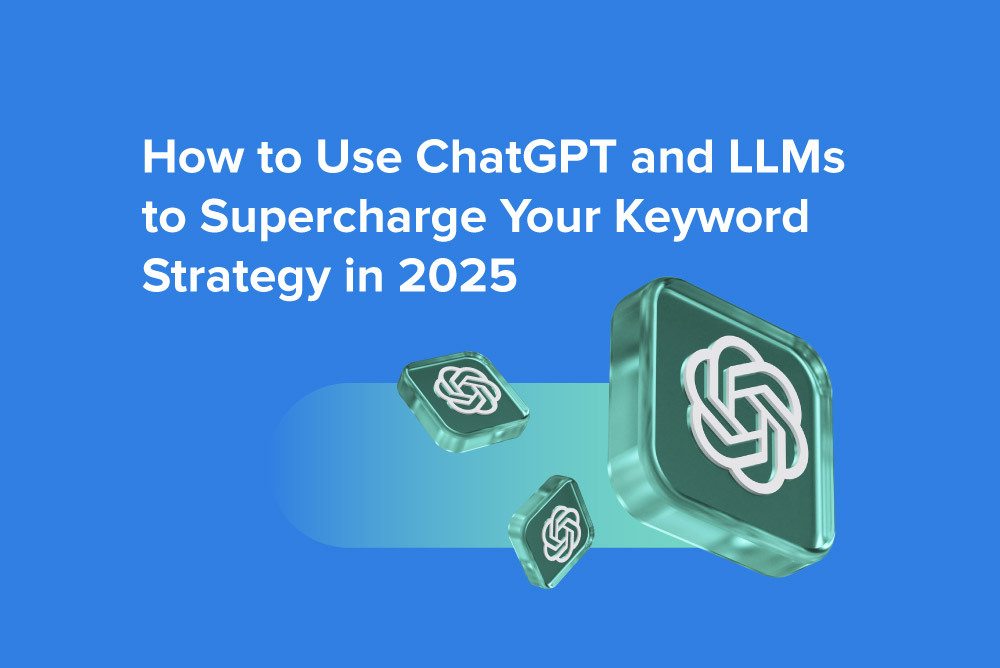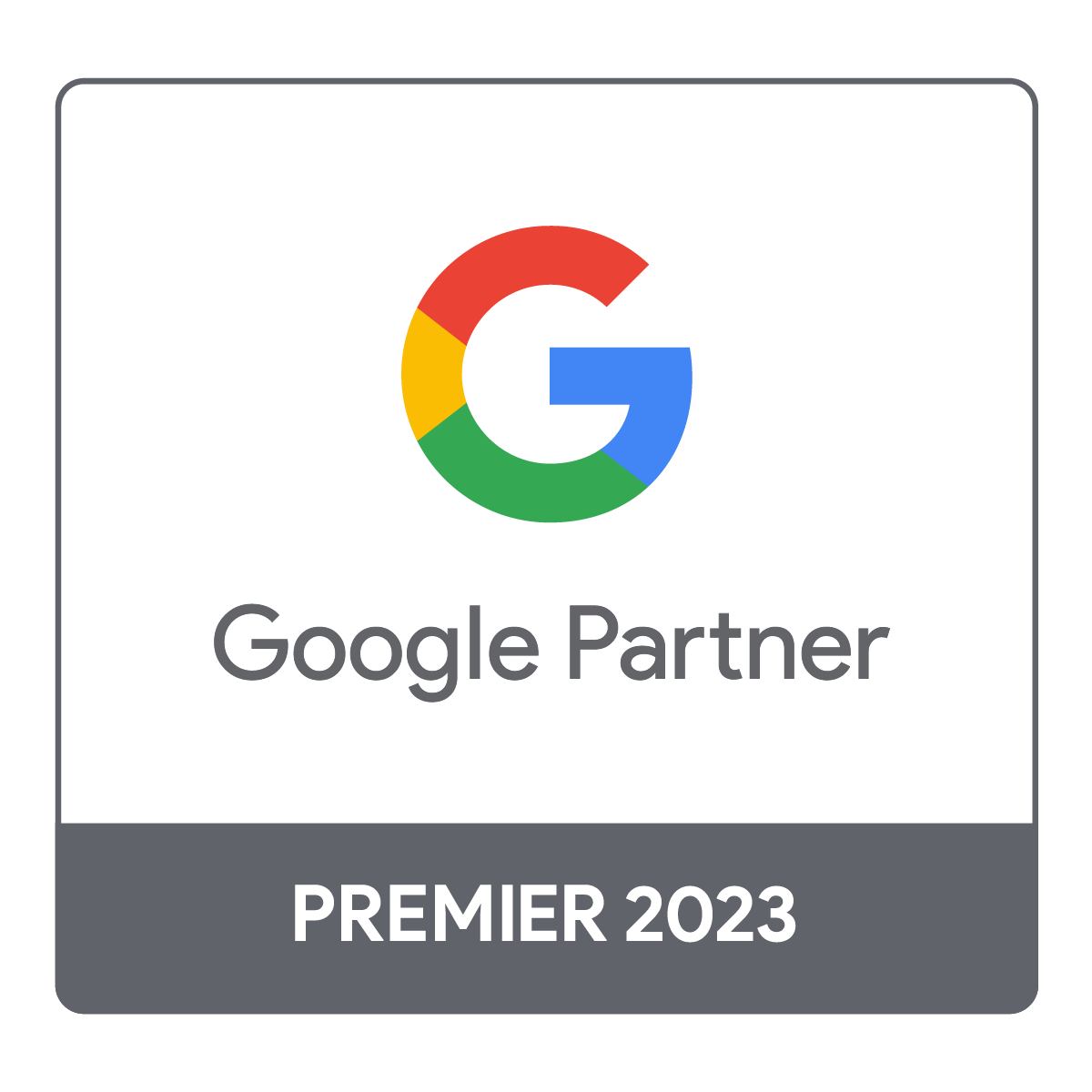How to Use ChatGPT and LLMs to Supercharge Your Keyword Strategy in 2025
The landscape of search engine optimisation is in constant flux, and as we navigate towards 2025. The methodologies that once defined effective keyword research are rapidly evolving. Traditional tools, while still indispensable, are being complemented and, in some cases, transformed by the power of Large Language Models, or LLMs, such as ChatGPT. This shift is not merely an incremental improvement. It represents a profound revolution in how SEO professionals, content marketers, and digital marketing teams uncover, analyse, and optimise for keywords. Ultimately, it leads to superior organic search performance and more impactful content strategies.
In this new era, the competitive advantage lies with those who master the integration of artificial intelligence into their workflow. We aim to equip you with practical, actionable strategies for leveraging LLMs to their fullest potential in keyword research. Enabling you to discover untapped opportunities, understand complex search intent, and streamline time-consuming processes.
Table of Contents
- The New Era of AI-Powered Keyword Research
- Essential ChatGPT Prompting Techniques for Keywords
- Long-Tail Keyword Generation Strategies
- Search Intent Analysis and Keyword Clustering
- Competitive Keyword Analysis with AI
- Validation and Implementation Framework
- Conclusion
- FAQ
Key Takeaways
- Large Language Models revolutionise keyword research by generating thousands of long-tail variations and semantic alternatives that traditional SEO tools frequently miss
- LLMs provide superior search intent analysis across informational, navigational, transactional, and commercial categories with remarkable accuracy
- Effective implementation requires strategic prompt engineering with specific context and detailed instructions to produce actionable keyword data
- LLMs excel at competitive analysis by identifying content gaps and reverse-engineering competitor strategies that conventional tools cannot detect
- AI-enhanced keyword research must be combined with traditional SEO tools for validation of search volume, competition metrics, and keyword difficulty
- This hybrid approach enables SEO professionals to discover untapped opportunities, streamline time-intensive processes, and create targeted content strategies that align precisely with user intent throughout the customer journey

Schedule a comprehensive SEO consultation to develop strategies that enhance local visibility and drive sustained growth across all your locations.
The New Era of AI-Powered Keyword Research
Why Traditional Keyword Research Isn’t Enough in 2025
For years, keyword research has been the bedrock of SEO, guiding content creation and optimisation efforts. While essential tools like Ahrefs, Semrush, and Moz continue to provide invaluable data on search volume, competition, and keyword difficulty, they often fall short in uncovering the nuances of user intent or generating the vast array of conversational and long-tail variations that define modern search behaviour. The sheer scale of new queries, the rise of voice search, and the increasing sophistication of search engine algorithms demand a more dynamic and expansive approach than traditional methods alone can offer. Manual keyword research and grouping processes can be incredibly time-consuming, particularly for large-scale websites or multiple client accounts, leading to a constant struggle to scale efforts efficiently.
How LLMs are Changing the Keyword Discovery Game
Large Language Models are fundamentally altering the keyword discovery landscape by introducing capabilities that were previously unattainable. These AI models excel at understanding context, generating creative text, and processing vast amounts of linguistic data. This means they can generate thousands of highly relevant long-tail keyword variations and semantic alternatives that traditional keyword tools might miss entirely, significantly expanding your keyword universe. Furthermore, LLMs possess an unparalleled ability to analyse and categorise search intent with remarkable accuracy, helping to craft more targeted content strategies that precisely match user needs at every stage of the customer journey. For SEO specialists facing challenges in creating comprehensive content briefs from raw keyword data, LLMs offer a pathway to automate and refine this critical step.

Essential ChatGPT Prompting Techniques for Keywords
Crafting Effective Keyword Research Prompts
The true power of LLMs in SEO lies in the art of prompt engineering. To transform ChatGPT into a powerful keyword research assistant, you must learn to ask the right questions. Effective keyword research prompts are specific, clear, and provide context, guiding the AI to generate precise and relevant outputs. Instead of simply asking for “keywords about coffee,” consider a more detailed prompt such as: “Generate a list of 50 long-tail keywords for a specialty coffee blog targeting beginners, focusing on brewing methods, bean types, and tasting notes. Include search intent for each.” This level of detail directs the LLM to deliver highly actionable results.
Advanced Prompt Engineering for Search Intent Analysis
One of the most valuable applications of LLMs is their capacity for advanced search intent analysis. AI excels at interpreting the underlying purpose behind a query, whether it is informational, navigational, transactional, or commercial investigation. To leverage this, employ prompts that instruct the LLM to categorise keywords by intent. For example: “For the following list of keywords, categorise each by search intent (informational, navigational, transactional, commercial investigation) and explain your reasoning: [list of keywords].” This capability is crucial for creating content that perfectly aligns with what users are truly seeking.
Prompt Templates for Different Keyword Research Scenarios
Developing a library of prompt templates can significantly streamline your AI keyword research. For instance, a template for content gap identification might look like: “Analyse the top 10 ranking articles for the query ‘[competitor’s main keyword]’ and identify any subtopics or specific questions they are not fully addressing. Suggest 10 long-tail keywords based on these gaps.” For a more creative approach to expanding seed keywords, try: “Given the seed keyword ‘[your main topic]’, generate 20 semantic variations and related concepts that a user might search for. Focus on terms that indicate different stages of awareness or specific problems they are trying to solve.” These structured prompts ensure consistent and valuable outputs for various keyword research scenarios.
Long-Tail Keyword Generation Strategies
Expanding Seed Keywords with Semantic Variations
LLMs are exceptional at generating semantic variations, offering a distinct advantage over traditional tools which primarily rely on exact match data. By feeding a seed keyword or topic to an LLM, you can prompt it to brainstorm a vast array of related phrases, synonyms, and conceptual alternatives that reflect natural language. For example, providing “sustainable fashion” could yield variations like “eco-friendly clothing brands,” “ethical apparel choices,” “recycled fabric trends,” or “conscious consumer fashion guide.” This LLM keyword generation technique uncovers a richer, more diverse set of potential target terms.
Creating Conversational and Voice Search Keywords
The rise of voice search and conversational queries means that keywords are becoming longer and more question-based. LLMs are uniquely positioned to assist in this area. You can prompt ChatGPT to simulate natural language queries. Consider prompts like: “Generate 25 conversational questions a user might ask a voice assistant about ‘best practices for remote work productivity'” or “Create long-tail phrases for a blog post about ‘healthy meal prep for busy professionals’ that sound like natural spoken questions.” This focuses on ChatGPT long-tail keywords and AI keyword discovery techniques tailored for the evolving search landscape.
Industry-Specific Keyword Discovery Techniques
LLMs can be incredibly adept at generating industry-specific keywords, even for niche sectors. By providing the AI with background information about your industry, target audience, and specific products or services, you can unlock highly relevant keyword opportunities. For example, if you operate in the B2B SaaS space for marketing automation, you might prompt: “Brainstorm 30 unique, highly specific long-tail keywords for a B2B SaaS platform that automates email marketing for small businesses. Focus on pain points and solution-oriented queries.” This enables targeted AI keyword discovery techniques that are deeply contextual.
Search Intent Analysis and Keyword Clustering
Using LLMs to Categorise Keywords by Intent
Understanding search intent is paramount for creating effective content. LLMs excel at this by interpreting the context and implied purpose of a query. Instead of manually sifting through keywords to determine if they are informational, navigational, transactional, or commercial investigation, you can leverage AI. Provide a list of keywords and ask the LLM to categorise them. For instance: “For the following list of unorganised keywords related to ‘digital marketing strategies,’ group them by their primary search intent and explain why each keyword fits that category.” This application of AI search intent analysis streamlines a traditionally labour-intensive process.
Creating Keyword Clusters for Content Planning
Beyond individual keyword analysis, LLMs are invaluable for creating comprehensive keyword clusters, which are groups of semantically related keywords that can be targeted by a single piece of content. This strategy supports topical authority and comprehensive content coverage. You can prompt the AI to take a broad topic and break it down into relevant sub-topics and associated keywords. For example: “Based on the core topic ‘sustainable living,’ generate five distinct keyword clusters, providing 10-15 related long-tail keywords for each cluster, suitable for different blog post ideas.” This powerful use of LLM keyword clustering facilitates efficient content planning.
Mapping Keywords to Customer Journey Stages
Aligning keywords with the various stages of the customer journey (awareness, consideration, decision) ensures that your content addresses user needs at every touchpoint. LLMs can assist in this strategic mapping. By providing a list of keywords, you can ask the AI to determine which stage of the customer journey each keyword most closely aligns with. For example: “For these keywords related to ‘buying a new car,’ assign each to the awareness, consideration, or decision stage of a typical customer journey: [list of keywords].” This depth of AI-powered keyword analysis helps in crafting highly effective content funnels.
Competitive Keyword Analysis with AI
Reverse-Engineering Competitor Content Strategies
LLMs can provide unique insights into competitor content strategies. While traditional tools reveal what keywords competitors rank for, LLMs can analyse their content to infer their underlying keyword strategies, content angles, and topic coverage. You could prompt: “Analyse the content of [competitor’s top-ranking article URL] and summarise the main keywords targeted, the questions answered, and suggest any long-tail variations they might have missed.” This allows for a deeper understanding of ChatGPT SEO keywords from a competitive standpoint.
Identifying Content Gaps Using LLM Analysis
One of the most potent applications of LLMs in competitive analysis is identifying content gaps. By comparing your content (or your planned content) against that of top-ranking competitors, LLMs can highlight areas where your content is lacking in depth or coverage. A useful prompt might be: “Compare our article on ‘[your article topic]’ with the top three ranking articles for ‘[main keyword]’. Identify specific topics, sub-sections, or questions that our content does not cover but are present in the top-ranking results, and suggest relevant keywords.” This provides actionable insights for filling strategic gaps.
Predicting Trending Keywords and Topics
While LLMs do not have real-time internet access in all configurations, they are trained on vast datasets that allow them to recognise patterns and relationships that can hint at emerging trends. By feeding them current industry news or broad concepts, you can prompt them to predict related keywords or topics that might gain traction. For instance: “Given the recent discussions around ‘AI ethics in business,’ what are 10 potential future keyword trends or conversational queries that might emerge?” This predictive capability, while not a substitute for trend analysis tools, offers a unique layer to your AI keyword research strategy.

Validation and Implementation Framework
Combining LLM Insights with Traditional SEO Tools
It is crucial to understand that LLMs are powerful assistants, not replacements for traditional SEO tools. LLM-generated keywords, while innovative and extensive, must be validated with traditional SEO tools for essential data like search volume, competition, and keyword difficulty to ensure strategic viability. The process should involve generating a wide array of keywords and variations using an LLM, then filtering and prioritising these insights through tools like Ahrefs or Semrush to confirm their real-world impact. This blend of ChatGPT keyword research with established methodologies offers the most robust approach.
Creating Actionable Keyword Lists and Content Briefs
Once validated, the LLM-enhanced keyword data needs to be organised into actionable lists and comprehensive content briefs. LLMs can help here, too. After you have a refined list of keywords, you can prompt the AI to structure a content brief, suggesting headings, subheadings, and key points to cover for a specific topic cluster. For example: “Generate a detailed content brief for a blog post targeting the keyword cluster ‘[specific cluster name]’, including suggested H2s and H3s, and key points to address for each section.” This transforms raw LLM keyword strategy outputs into practical content directives.
Measuring Success and Iterating Your AI Keyword Strategy
Like any SEO strategy, the effectiveness of your AI-enhanced keyword approach must be continually measured and iterated upon. Monitor the performance of content optimised with LLM-discovered keywords using standard SEO analytics. Track organic traffic, keyword rankings, engagement metrics, and conversion rates. Use these insights to refine your prompting techniques, adapt your keyword generation strategies, and further integrate AI into your ongoing SEO workflow. This continuous feedback loop ensures that your ChatGPT SEO keywords efforts remain at the cutting edge.
Conclusion
The integration of ChatGPT and other Large Language Models into keyword strategy is not merely an optional upgrade; it is a fundamental shift that is redefining the capabilities of SEO professionals. By mastering strategic prompting techniques, you can unlock thousands of long-tail keyword variations, conduct nuanced search intent analysis, and efficiently cluster keywords for content planning. While LLMs offer revolutionary capabilities, their true power is realised when combined with the validation and data of traditional SEO tools. This synergistic approach provides a formidable competitive advantage, enabling you to discover opportunities, streamline processes, and ultimately drive superior organic search performance.
To explore how First Page can elevate your keyword strategy with cutting-edge AI-enhanced methodologies, or to schedule a consultation on implementing LLM-powered SEO strategies tailored for your business, we encourage you to contact us today. Embrace the future of keyword research and supercharge your content optimisation efforts.
Frequently Asked Questions
What is the primary advantage of using LLMs for keyword research?
LLMs excel at generating a vast number of diverse long-tail and semantic keyword variations. Offering deeper insights into user intent and conversational queries that traditional tools might overlook. This expands your keyword universe significantly.
Can LLMs replace traditional keyword research tools?
No, LLMs are powerful complements, not replacements. They enhance the discovery and analysis phase. But traditional tools remain essential for validating keyword viability through metrics like search volume, competition, and keyword difficulty.
How accurate is LLM-generated search intent analysis?
LLMs are highly effective at categorising search intent due to their advanced natural language understanding. However, human review and validation are always recommended to ensure precision and context-specific accuracy.
What is prompt engineering in the context of AI keyword research?
Prompt engineering involves crafting specific and detailed instructions or questions for the LLM to guide its output. Ensuring it generates highly relevant and actionable keyword data for your SEO needs.
How can small businesses leverage LLMs for their SEO?
Small businesses can use LLMs to efficiently brainstorm long-tail keywords, understand local search intent, create initial content outlines, and even draft meta descriptions. It democratises access to advanced SEO capabilities without requiring extensive budgets for multiple premium tools.

Schedule a comprehensive SEO consultation to develop strategies that enhance local visibility and drive sustained growth across all your locations.













